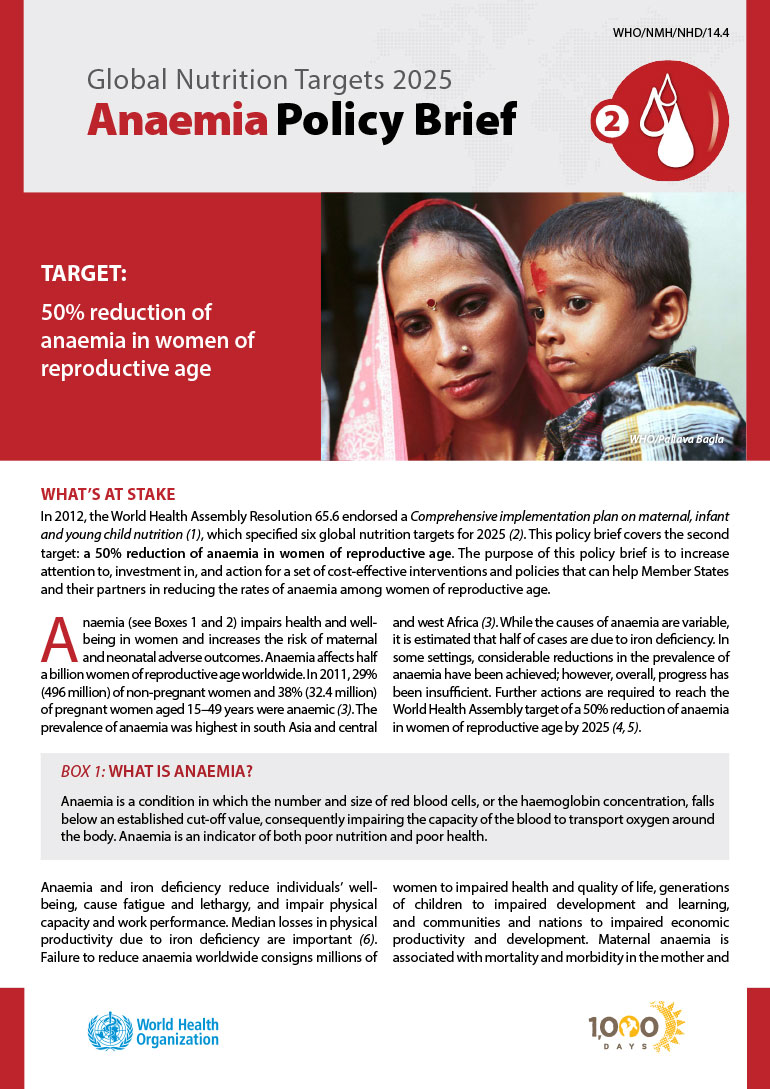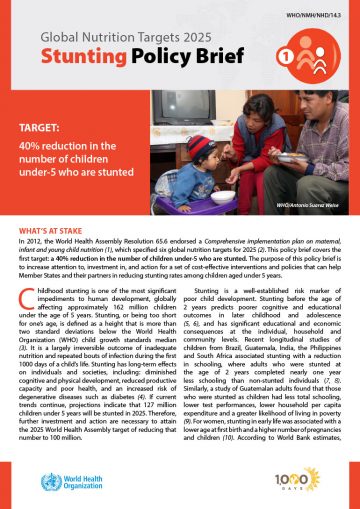Anaemia Policy Brief
The World Health Organization (WHO), in collaboration with 1,000 Days, developed a series of six policy briefs linked to each of the global nutrition targets. These policy briefs provide essential guidance to policymakers regarding actions needed in order to achieve progress toward improving maternal and child nutrition and achieving the global nutrition targets by 2025.
Anemia impairs health and well-being in women and increases the risk of poor maternal and infant outcomes. Anemia affects half a billion women of reproductive age worldwide. While the causes of anemia are variable, it is estimated that half of cases are due to iron deficiency. Greater progress is required to reach the global target of a 50% reduction of anemia in women of reproductive age by 2025.


